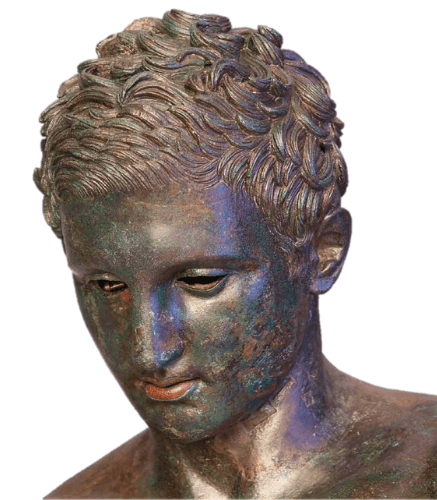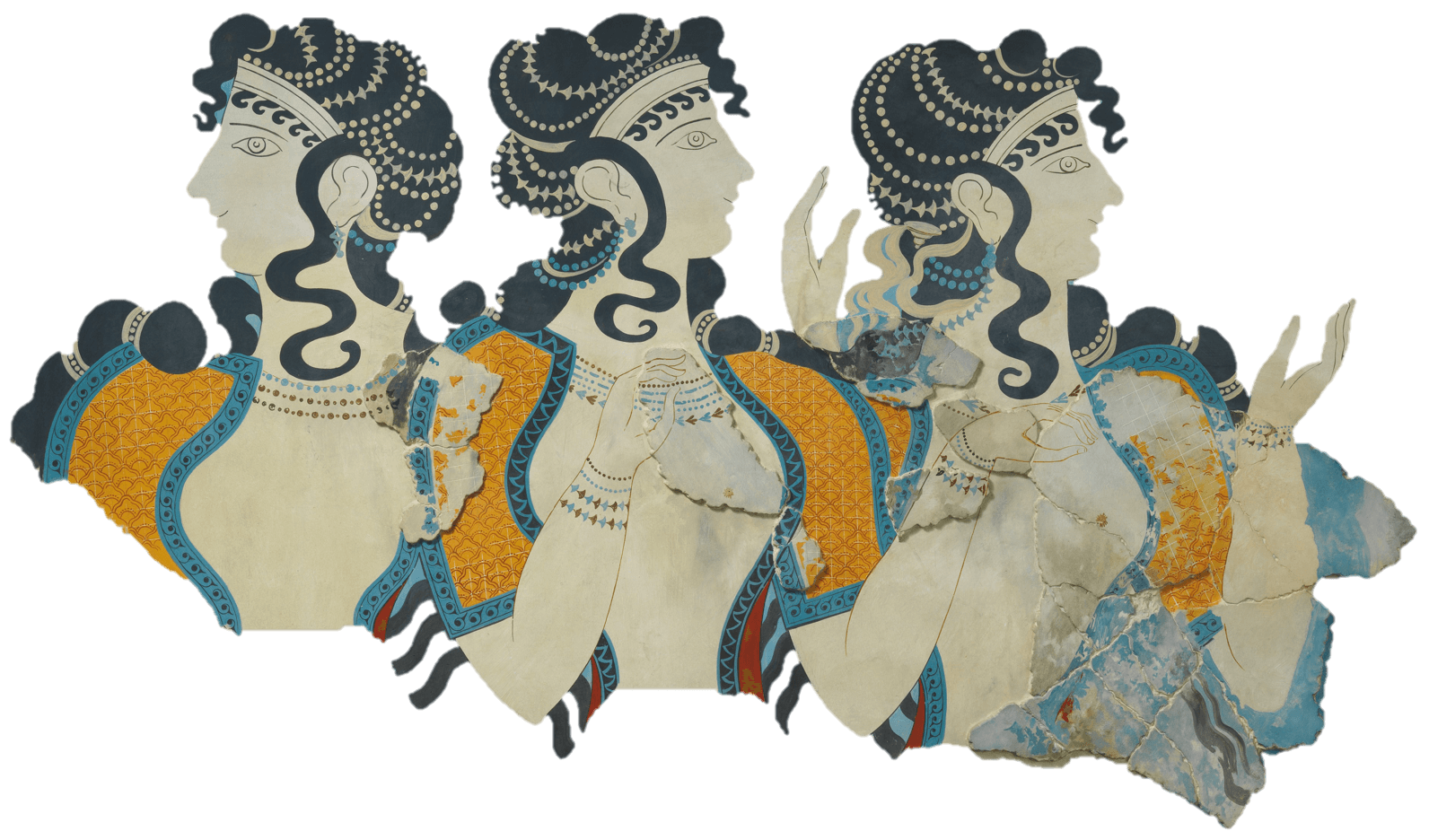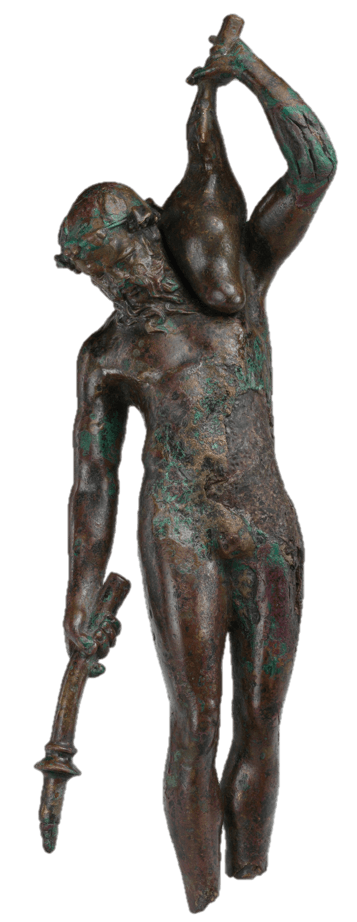The Prison Education Project is proud to announce that Dr. Grizelda McClelland has been named the Onassis Foundation Teaching Fellow in Culture and Humanities. This generous fellowship will support her Spring 2019 course in ancient Greek culture at Missouri Eastern Correctional Center.
This fellowship is funded through the Bard Prison Initiative (BPI), which recently received a grant from the Onassis Foundation USA for the purposes of funding and expanding course offerings in Greek culture, philosophy, humanities, arts, and politics. BPI invited partners across the Consortium for the Liberal Arts in Prison to apply for two titled, distinguished teaching fellowships. The Prison Education Project nominated Dr. McClelland to receive this award, and we are thrilled that BPI and the Onassis Foundation selected us as one of the two recipients of this inaugural award.
Dr. Grizelda McClelland comes highly recommended for her academic achievements and excellence in teaching, by both Catherine Keane, Chair of the Department of Classics, and Jennifer Smith, Dean of the College of Arts & Sciences. She will teach “Greek Mythology,” a course which will provide students with a foundation in great works of Greek literature along with their historical context. The course is already well-established on the Danforth campus. Bringing it to the prison is consistent with the PEP philosophy that incarcerated students are capable of excelling within and must have access to the same education that is available on the main campus.
A Word from the Department of Classics
The Wash U Classics community believes in expanding access to the study of the ancient Greeks and Romans. These cultures and their legacies should not be the property of an elite segment of society – as they were for hundreds of years – but should “belong” to anyone who loves to learn and to think. We see the wonderful effects of first encounters with Classics in our teaching on campus, and we are proud to join colleagues around the world in pursuing new forms of outreach. The Bard Consortium and the Onassis Foundation have created an exciting opportunity for classicists in this vein. We are thrilled to see Dr. McClelland, who earned her PhD here at Wash U, chosen as a recipient. She is a passionate teacher of Greek and Roman culture and literature who has inspired many Wash U undergraduates to go deeper in their studies and to challenge themselves. Without a doubt, she will do the same for the students in the Prison Education Project. It is a huge understatement to say that this is a very proud moment for our department and university!
– Catherine Keane, Professor and Chair, Department of Classics

Greek Mythology
Greek mythology—with its bizarre tales of incest, intrigue, murder, and deities behaving badly—has captivated our imagination for over three thousand years. What is it about Greek mythology that gives it this enduring quality? Are these myths simply a set of enthralling tall tales with no redeeming qualities, or do they contain a seed of truth, telling us something profound about the human condition? Fore-fronting ancient Greek and Roman authors, students will examine Greek mythology from a variety of angles. How do ancient authors interpret and reinterpret myths in service of their cultural and societal aims? What anxieties do these mythical engagements evince? How have subsequent generations grappled with the meaning and nature of myth?
“Greek Mythology” will be the first course wholly focused on the field of classics offered in the prison, and the fellowship opportunity has the potential to cement a strong ongoing relationship between the Classics Department and PEP. Professor Catherine Keane, department chair, hopes to offer a series of humanities courses in Greek culture in the prison, starting with “Greek Mythology” in Spring 2019. Future courses, offered in a series with “Mythology,” may include “Greek History: The Dawn of Democracy” and beginning courses in Greek language. As on the main Washington University campus, “Mythology” would serve as an entry point into deeper study of the ancient Greek world. It will be an excellent contribution to the full liberal arts curriculum that PEP continues to build within the prison walls.
The Prison Education Project would like to share its sincere gratitude with the Onassis Foundation USA and the Bard Prison Initiative. It would also like to thank Dr. McClelland, the Department of Classics, and the College of Arts & Sciences for their support in the realization of this unique opportunity.
Bard Prison Initiative & the Onassis Foundation
The Bard Prison Initiative received an $80,000 grant from the Onassis Foundation USA to establish the Onassis Foundation USA–BPI Humanities and Classics Collaboration, which promotes the study of humanities and Greek culture and the expansion of access to education for marginalized and disadvantaged students. Through this funding, BPI will support courses and lectures related to Greek culture, humanities, arts, and politics within its six in-prison campuses and two microcollege locations outside prison. The grant will also support two courses within the Consortium for the Liberal Arts in Prison, through which BPI partners can expand and sustain college-in-prison nationally.
The collaboration with BPI marks an important shift for the Onassis Foundation USA toward developing partnerships with organizations that do good work at the intersection of humanities education and social justice. Access to education for all, regardless of life circumstances, is a key to individual improvement and the development of our communities, and I am pleased to work together with BPI to bolster its academic curriculum in the humanities and classics.
The Onassis Foundation has historically supported Greek society through the pillars of Education, Culture, and Health. It was established in December 1975 in accordance with Aristotle Onassis’ last wish to honor the memory of his son, Alexander. Half of Aristotle Onassis’ fortune was the initial funding for the Foundation. Since then, all the programs and initiatives of the Foundation have been financed by its successful business activity. The Onassis Foundation USA, an affiliate of the parent Foundation, promotes cultural relations through two major initiatives, one cultural for the general public through its Onassis Cultural Center New York, and the other educational for scholars and students in partnership with academic institutions through the Onassis Humanities Impact Program. For more information, visit onassisusa.org.
In 1999, in response to the decimation of college-in-prison nationally, the Bard Prison Initiative was founded by undergraduates at Bard College. After gaining access to the New York State prison system and securing limited funding, Bard College launched BPI as a pilot program with 16 students in 2001. Since then, the program has grown annually and dramatically. Its first associate degrees were issued in 2005 and the first bachelor’s degrees in 2008. Today, the BPI college is spread across six interconnected prisons in New York State. It enrolls more than 300 students and organizes a host of extracurricular activities essential to the breadth of college life and inquiry. Since 2001, BPI has issued roughly 50,000 credits and 450 degrees; it offers more than 165 courses per academic year and engages an extraordinary range of college faculty. Extrapolating from the successful establishment of the college, BPI has expanded in multiple directions. First, it is the home of a national Consortium that cultivates, supports, and establishes college-in-prison programs in partnership with colleges and universities across the country. Second, its office of Reentry & Alumni Affairs works with formerly incarcerated Bard students as they pursue robust civic and professional lives after release. Most recently, BPI established the Bard Microcollege to bring full-scholarship, academically rigorous liberal arts college to isolated communities outside of prison. In all its work, BPI builds alliances to rethink access, reduce costs, and redress inequities in higher education. For more information, visit bpi.bard.edu.
Images
Header: Athlete “The Croatian Apoxyomenos”, 100-1 B.C.E., Bronze and copper, 78 7/10 × 23 3/5 × 19 7/10 in; 199.8 × 60 × 50 cm, Museum of Apoxyomenos, Mali Lošinj, Croatia © Tourism Board of Mali Losinj
Exekias, Achilles and Ajax Playing a Board Game, 540-530 BCE, Terracotta amphora, Musei Vaticani, Rome
Emile Gilliéron fils, Reproduction of the “Ladies in Blue” fresco, 1927, Late Minoan IB ca. 1525–1450 B.C., painted plaster, 61 1/2 x 40 in., Metropolitan Museum of Art, New York
Right: Bronze statuette of a satyr with a torch and wineskin, Hellenistic, 3rd–2nd century B.C., Bronze, H. 9 15/16 in. (25.3 cm), Metropolitan Museum of Art, New York



